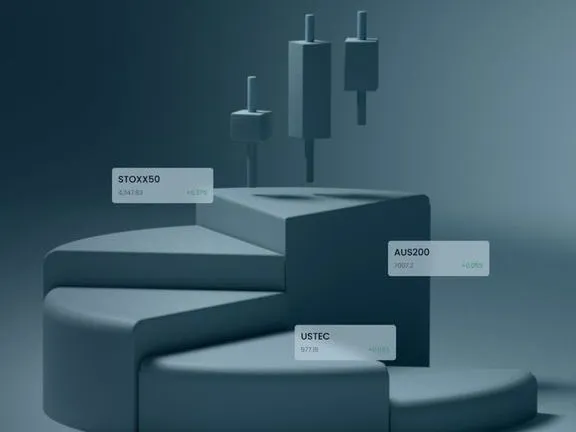What Are Stock Indices?
A stock index measures the performance of a selected group of companies listed on an exchange. Each index reflects the value of a market segment or an entire economy. Trading CFDs on indices allows speculation on price movements without owning the underlying assets, complementing opportunities available through Exness stock trading.
Some of the most traded benchmarks available on Exness include:
- S&P 500 (US500): Represents 500 leading companies across major U.S. sectors.
- NASDAQ-100 (USTEC): Focused on 100 large U.S. non-financial firms with strong emphasis on technology.
- Dow Jones Industrial Average (US30): Tracks 30 established companies considered a barometer of U.S. economic health.
- FTSE 100 (UK100): Covers the 100 largest corporations listed on the London Stock Exchange.
- DAX 40 (GER40): Includes 40 major German companies spanning multiple industries.
- Nikkei 225 (JPN225): Reflects the performance of 225 high-profile businesses in Japan.
- Hang Seng Index (HK50): Comprises 50 large enterprises traded in Hong Kong, often used as a reference for Asian trends.
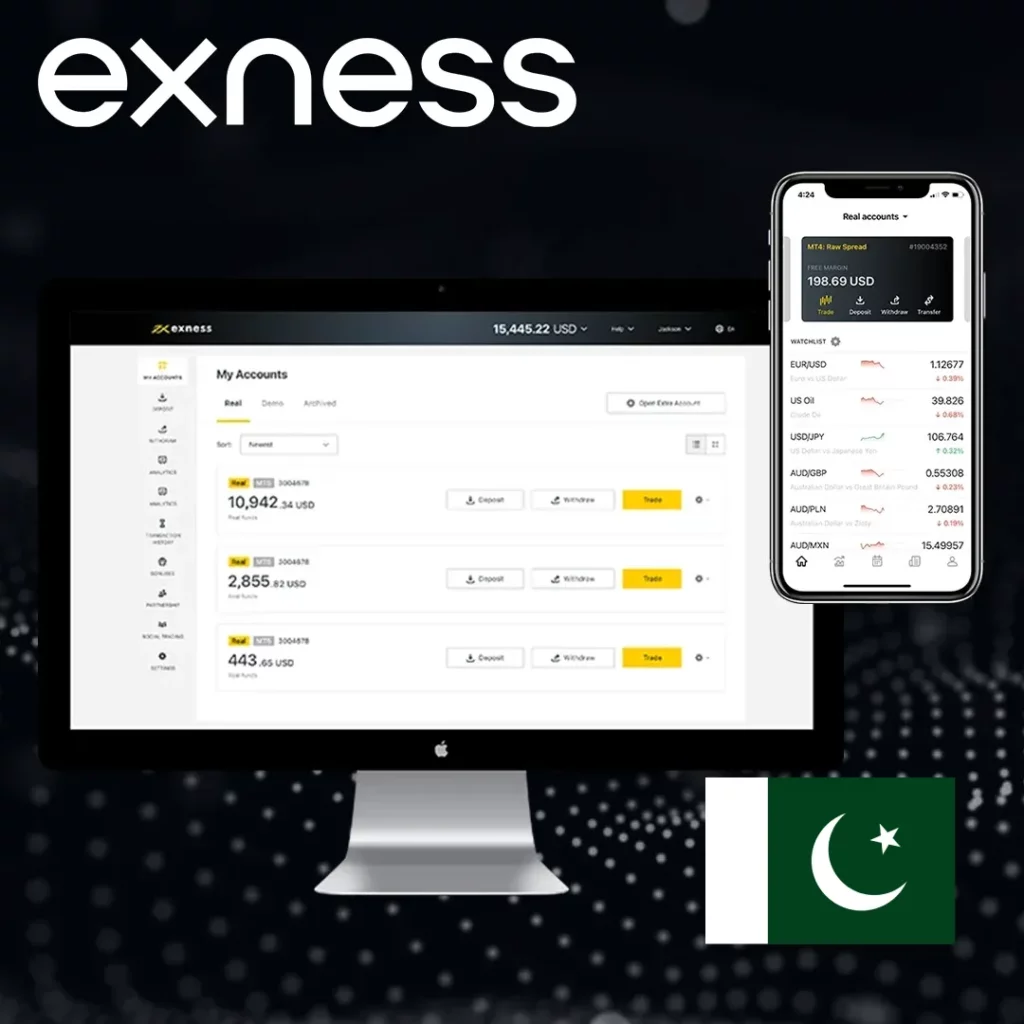
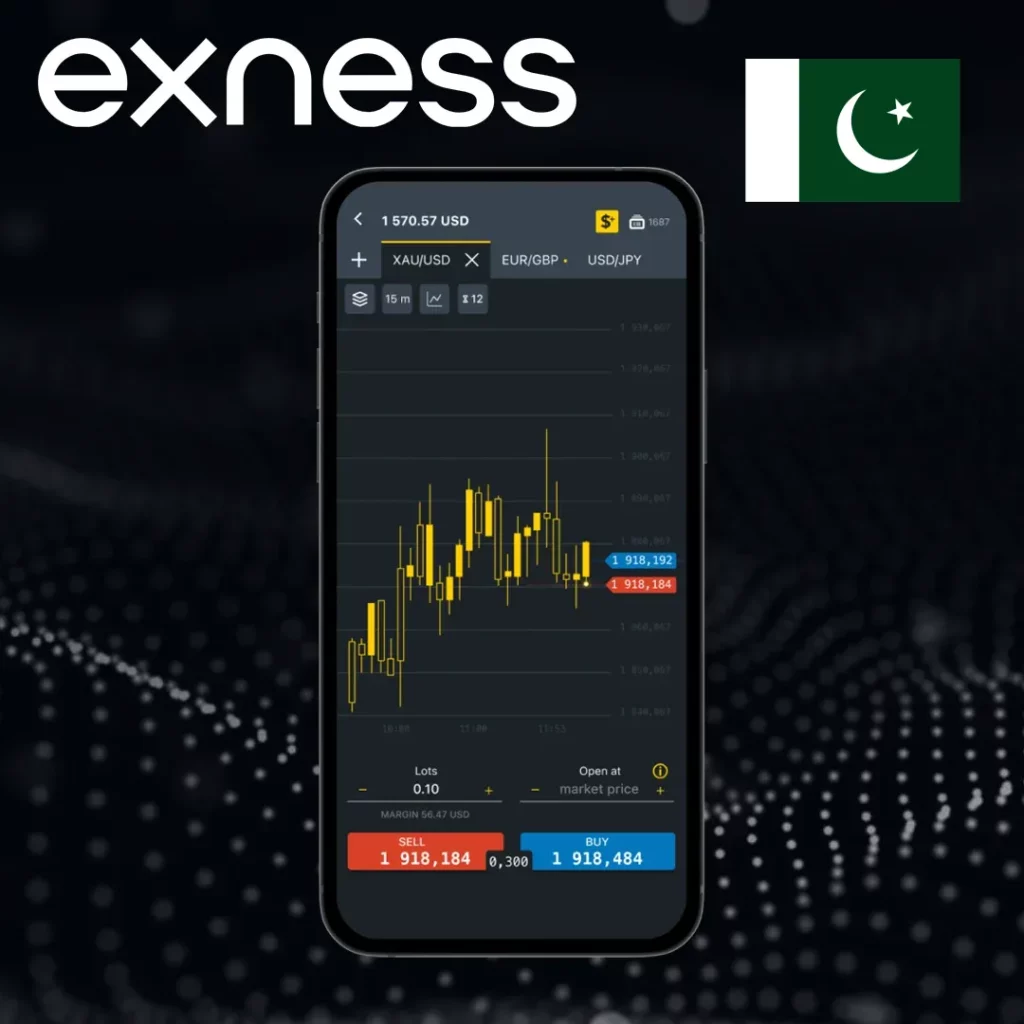
Why Trade Indices with Exness?
Trading indices on Exness combines advanced execution with risk management tools. The setup helps participants react to both short-term volatility and long-term growth patterns.
Key advantages include:
- Access to leading indices from the U.S., Europe, and Asia.
- Execution speeds measured in milliseconds.
- Detailed market data with multiple analysis tools.
- Transparent commissions and consistently low spreads.
This structure makes index CFDs suitable for traders working with both intraday strategies and longer holding periods.
Trading Conditions
Exness is known for competitive spreads and flexible margin requirements. Index trading follows the schedules of the underlying stock exchanges, allowing precise planning across regions, while strict compliance policies address issues such as Exness money laundering prevention.
Typical Spread Range (in points):
| Index | Average Spread |
| S&P 500 | 0.5 – 1.2 |
| NASDAQ-100 | 1.0 – 2.0 |
| Dow Jones | 1.5 – 3.0 |
| FTSE 100 | 0.8 – 1.8 |
| DAX 40 | 0.9 – 2.0 |
Trading Hours (GMT):
- U.S. indices: 13:30 – 20:00
- European indices: 07:00 – 15:30
- Asian indices: 01:00 – 08:00
This schedule aligns with the busiest market sessions, where liquidity and price movement are strongest.
Account Types for Index Trading
Exness offers several account options designed to match different trading approaches. Each account type has its own pricing structure, margin rules, and entry requirements. Choosing the right account depends on strategy, capital size, and execution needs.
Comparison of Account Types:
- Standard Account: No commission charges and spreads starting from 0.3 points. Suitable for beginners or those who want simple cost structure without a minimum deposit requirement.
- Raw Spread Account: Designed for traders focused on market pricing accuracy. Spreads start at 0.0 points with a $7 per lot commission. Popular among scalpers and intraday strategies.
- Zero Account: Offers fixed spreads at 0.0 points with a $7 per lot commission. Preferred by professionals who require predictable trading costs.
The transparency of Exness pricing helps participants calculate potential expenses and adjust their strategies without hidden charges.
Platforms for Index Trading
Trading indices with Exness is supported across multiple platforms, each offering tools for execution and analysis.
- MetaTrader 4 (MT4): Known for stability and a large selection of custom indicators.
- MetaTrader 5 (MT5): A more advanced version with additional order types and timeframes.
- Web Terminal: Browser-based access without software installation.
- Exness Trader App: A mobile application that allows real-time monitoring and execution on the go.
Execution speed is a highlight. Orders are processed in milliseconds, which minimizes slippage during volatile periods. For traders dealing with fast-moving indices like NASDAQ-100 or DAX 40, such speed is essential.
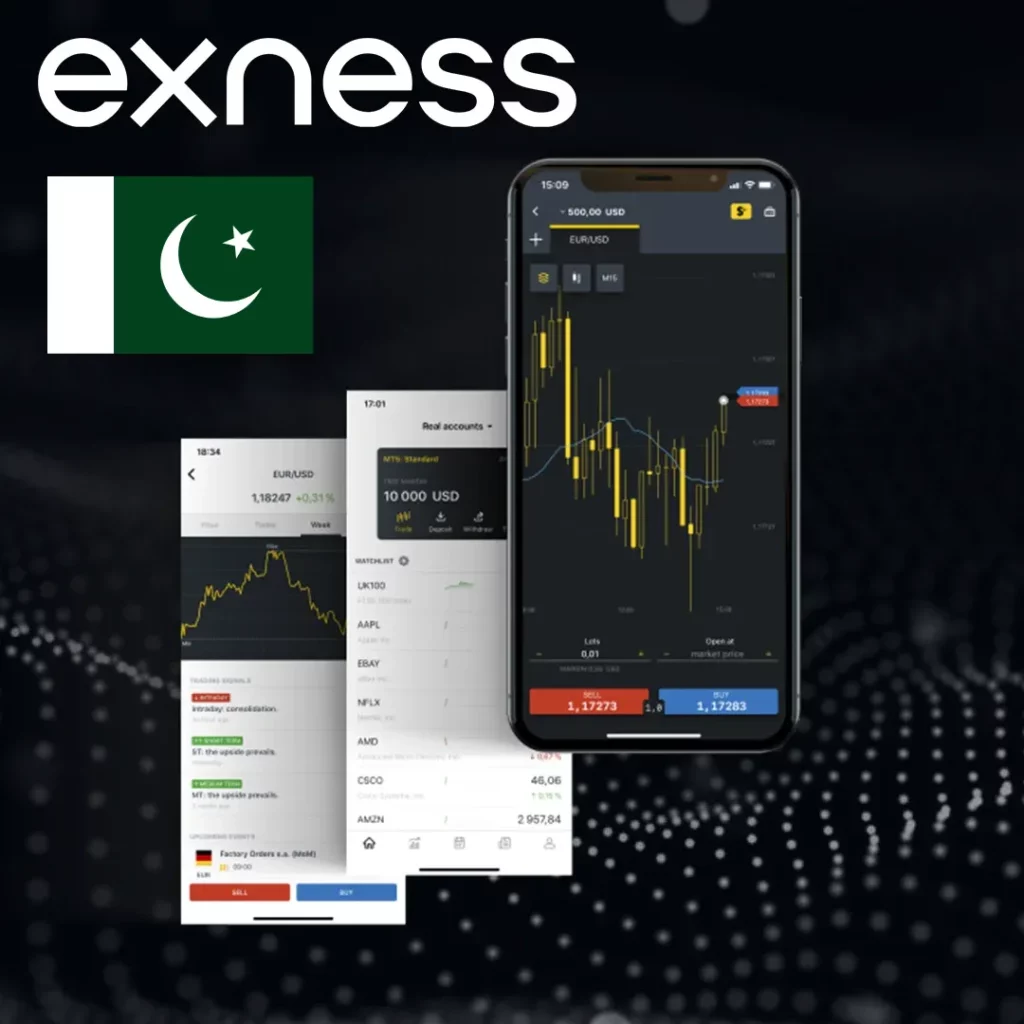
Risk Management Features
Controlling exposure is crucial when trading indices, given the impact of news releases and sudden market shifts. Exness integrates several tools that can reduce unwanted losses and help lock in profits.
- Stop Loss and Take Profit Orders – Automated instructions that close trades once a chosen price level is reached.
- Negative Balance Protection – Ensures losses never exceed the account balance, even during sharp market moves.
- Trailing Stops – Adjust dynamically with price movement, securing gains when the market goes in a favorable direction.
These mechanisms allow traders to focus on strategy instead of constant monitoring.
Technical Analysis Tools
Accurate market evaluation requires instruments that go beyond simple price charts. Exness integrates advanced analytics into its platforms, making it easier to study price action and prepare strategies.
- Custom Indicators: More than 50 pre-installed indicators are available, including Fibonacci retracements and moving averages. Traders can also import custom-built tools coded in MQL4 or MQL5.
- Multiple Timeframes: Analysis can be carried out from one-minute intervals to weekly charts. This flexibility supports both scalping techniques and long-term trend following.
- Economic Calendar: Key events such as central bank meetings or GDP announcements are built into the platform, helping traders anticipate volatility and adjust positions ahead of time.
This combination ensures that both technical and fundamental analysis can be performed without relying on third-party software.
VPS Hosting for Professionals
Those who run automated strategies or expert advisors often face challenges with connectivity and execution delays. To reduce these risks, Exness offers access to Virtual Private Server (VPS) hosting.
Main benefits of VPS hosting:
- Low latency: Orders are executed faster with minimal delay.
- 24/7 uptime: Automated systems remain active without interruption.
- Secure connection: Advanced encryption protects trading data.
A balance of $500 or more is required to qualify for complimentary VPS hosting. This feature is particularly useful for algorithmic strategies and high-frequency trading.
Copy Trading and Social Features
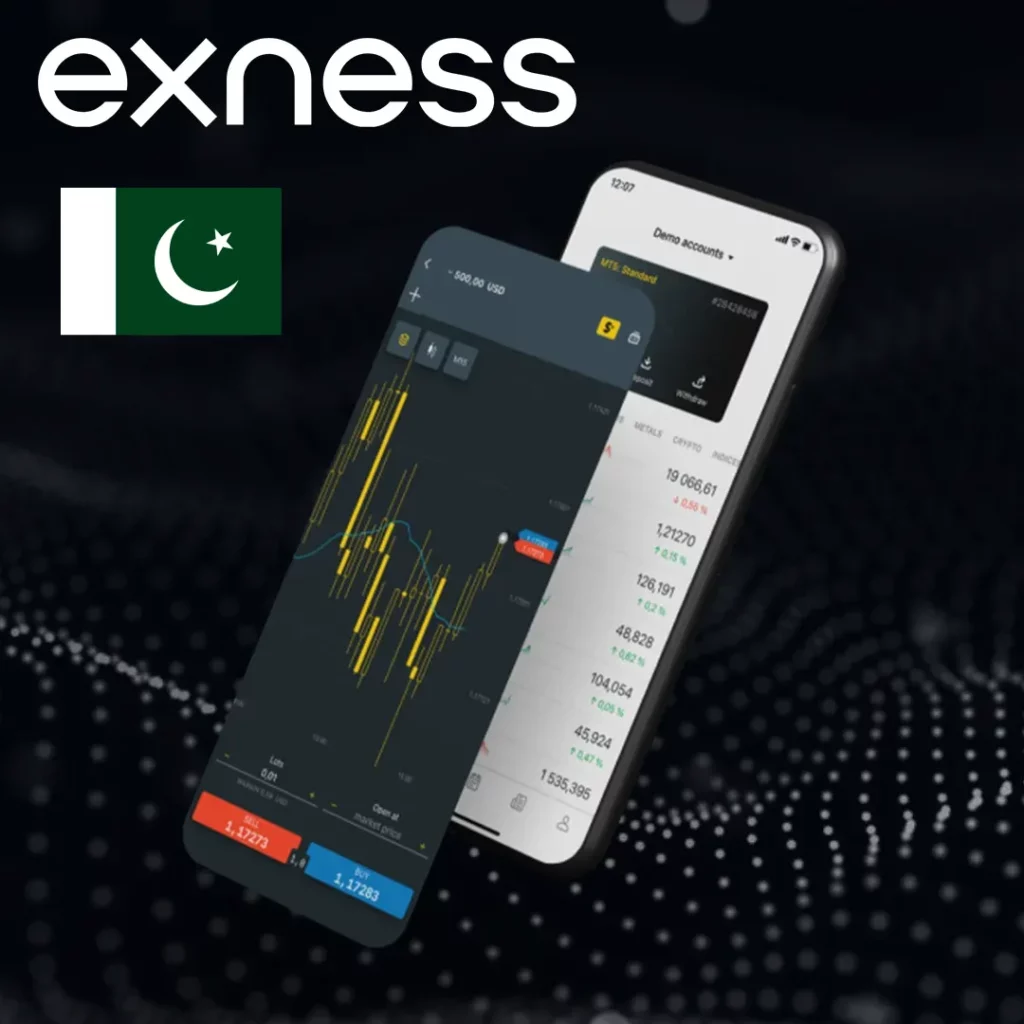
Not every participant wants to build strategies from scratch. Exness integrates copy trading, allowing users to mirror the actions of experienced traders with a proven track record.
- Follow Professionals: Choose from a list of traders ranked by performance.
- Automated Execution: Selected strategies are copied in real time.
- Flexible Adjustments: Positions can be scaled or closed according to personal risk tolerance.
This approach gives less experienced participants the opportunity to access advanced methods while maintaining control over their capital exposure.
Fee Structure
Clarity in costs is essential for evaluating performance. Exness applies a straightforward model that separates spreads, commissions, and swap charges.
Key elements:
- Spreads: Built into Standard accounts. Raw Spread and Zero accounts feature near-zero spreads but include commission fees.
- Commissions: Fixed at $7 per lot per round turn on Raw Spread and Zero accounts.
- Swap Fees: Charged on overnight positions; rates vary depending on the index and contract size.
- Inactivity Fees: No charges for dormant accounts, keeping long-term usage cost-efficient.
This structure allows traders to calculate expenses in advance and adapt strategies with accurate cost projections.
Deposits and Withdrawals
Funding and withdrawing capital is an important part of the trading process. Exness supports multiple payment options, making account management straightforward.
Available methods:
- Bank transfers for direct funding.
- E-wallets such as Skrill and Neteller.
- Cryptocurrencies, including Bitcoin and other supported assets.
Processing times vary by method, but most electronic transactions are handled quickly. Minimum deposit requirements depend on the chosen account type. Standard accounts have no minimum entry, while Raw Spread and Zero accounts require $500 to activate, though traders can also practice risk-free with an Exness demo account before committing funds.
Trading Hours in Detail
Each index follows the opening and closing times of its local exchange. Exness aligns its trading schedule accordingly, which allows participants to plan activity around the most liquid periods.
Schedule (GMT):
| Region | Indices | Trading Session |
| United States | S&P 500, NASDAQ-100, Dow Jones | 13:30 – 20:00 |
| Europe | FTSE 100, DAX 40 | 07:00 – 15:30 |
| Asia | Nikkei 225, Hang Seng | 01:00 – 08:00 |
Sessions with higher liquidity often create stronger movements, which are favored by both short-term and swing traders. Being aware of these times helps in adjusting strategies to match volatility and market depth.
Risk Management in Index Trading
Managing exposure is one of the most important elements of trading indices, as these markets often react sharply to economic releases and geopolitical news. Exness integrates several mechanisms that help limit losses and secure profits.
Main risk tools:
- Stop Loss Orders: Automatically close positions when price moves against expectations, reducing potential drawdowns.
- Take Profit Orders: Lock in gains once a predefined target is reached, removing the need for constant monitoring.
- Trailing Stops: Move in line with favorable price action, adjusting automatically to protect floating profits.
- Negative Balance Protection: Prevents accounts from falling below zero during high volatility, a safeguard against unexpected losses.
These features give traders more control over their exposure and make it possible to follow disciplined strategies even when markets move rapidly.
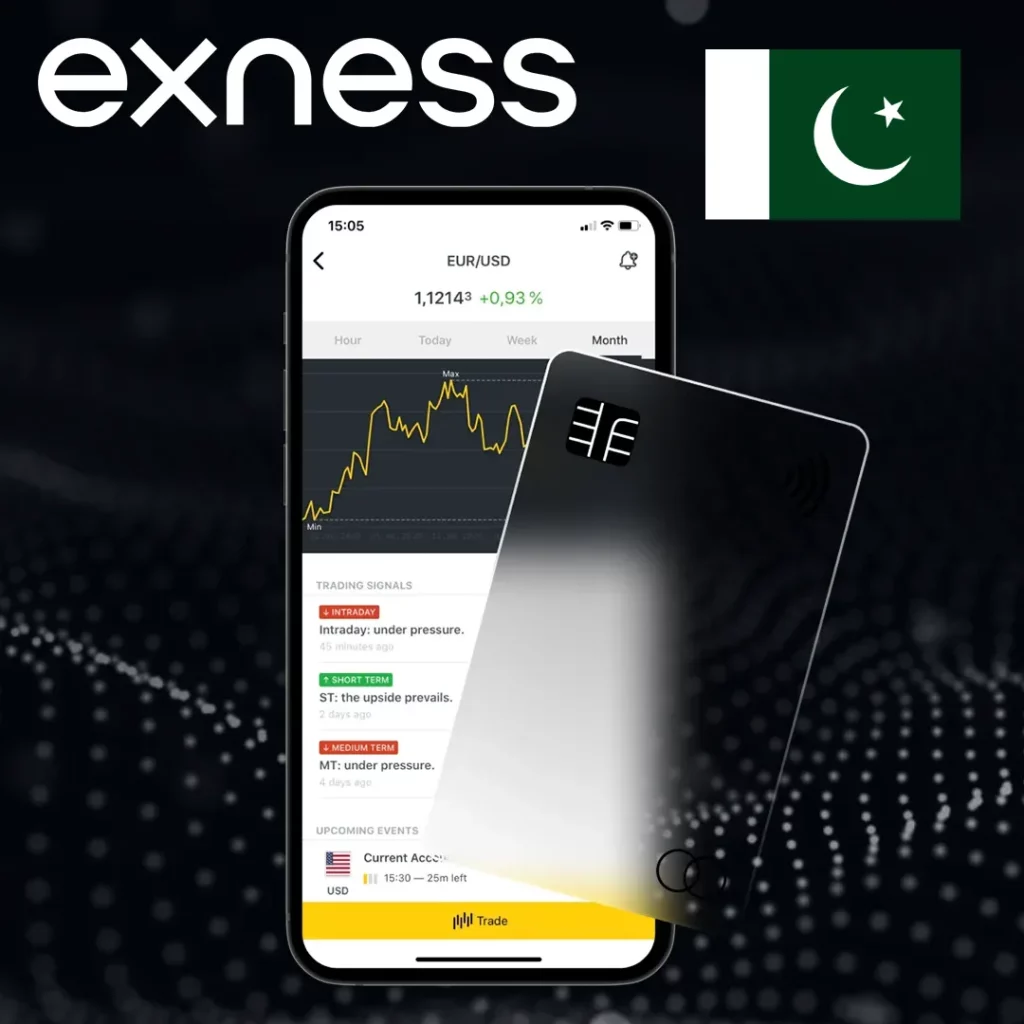

With Exness, different account types are available to match your strategy — pick the one that fits your needs and start trading now.
FAQ
Which indices are available on Exness?
Exness offers CFDs on major benchmarks such as S&P 500, NASDAQ-100, Dow Jones, FTSE 100, DAX 40, Nikkei 225, and Hang Seng Index.

